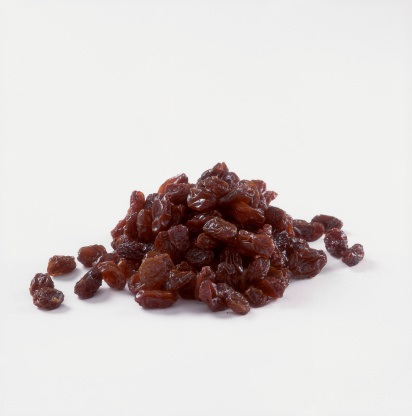It may all come down to a raisin.

A simple test using the dried grape can predict how well a toddler will perform academically at age eight, according to researchers.
During the study, a raisin was placed under a see-through cup within easy reach of a toddler. After three training runs, the toddlers were asked to wait one minute before they could touch and eat the raisin. The test assessed self-control in 20-month-olds.
During the study it was found that those who were born prematurely were more likely to take the raisin before the one-minute allotted time was up.
READ MORE: World Prematurity Day
In a follow-up study, the researchers found those toddlers who could not wait to get the raisin were not performing as well in school seven years later as their peers who were born full-term. The children’s skills were evaluated by a team of psychologists and pediatricians. The evaluation included academic performance in mathematics, reading, spelling and writing.
“This new finding is a key piece in the puzzle of long-term underachievement after preterm birth,” said Julia Jaekel, University of Tennessee assistant professor of child and family studies.
The authors concluded that the children born prematurely had lower inhibitory control and were more likely to have poor attention skills and low academic achievement at eight years old. The results of those born preterm between 25-38 weeks were compared to those born a healthy full term between 39-41 weeks.
“An easy, five-minute raisin game task represents a promising new tool for follow-up assessments to predict attention regulation and learning in preterm and term-born children,” said Dieter Wolke psychology professor, University of Warwick. “The results also point to potential innovative avenues to early intervention after preterm birth.”
- Buzz kill? Gen Z less interested in coffee than older Canadians, survey shows
- ‘She gets to be 10’: Ontario child’s heart donated to girl the same age
- Bird flu risk to humans an ‘enormous concern,’ WHO says. Here’s what to know
- Naloxone-resistant street drug linked to 9 deaths in Eastern Canada seized in Alberta
The study was conducted at the University of Warwick, University of Tennessee and University of Brighton, and the results were published in The Journal of Pediatrics.
Data was collected as part of the prospective Bavarian Longitudinal Study which began in Germany in 1985 and is still underway.
The academics said if these learning and attention challenges are identified early in toddlers, it could help tailor an educational plan to prevent underachieving at school.
“We knew the adverse impact of preterm birth on attention and academic success from our past research. This study sheds light on its underlying mechanism,” said Dr Eryigit-Madzwamuse from Brighton University. “This provides crucial knowledge for designing early education strategies that will build preterm-born children’s resilience which in turn will promote their development and achievement at school.”




Comments